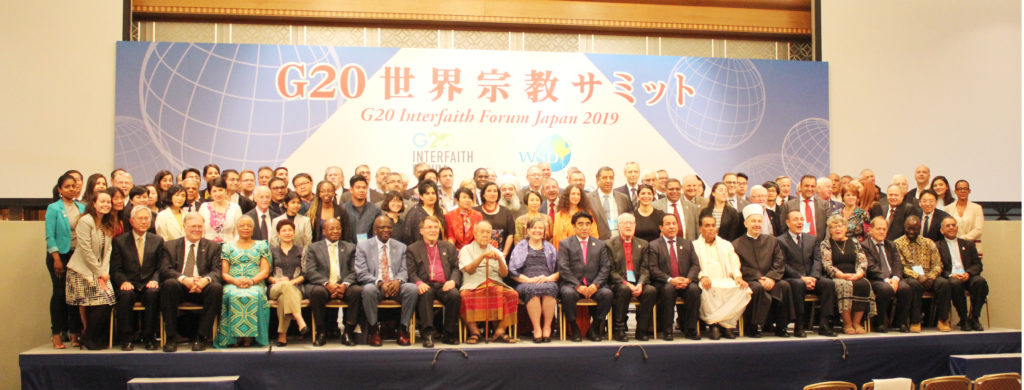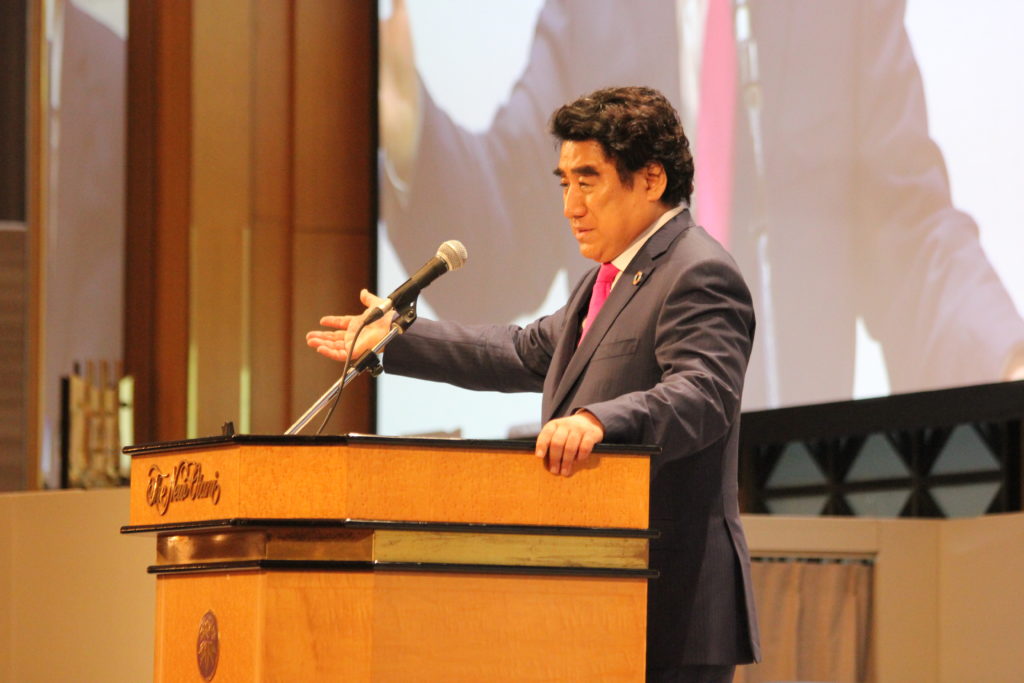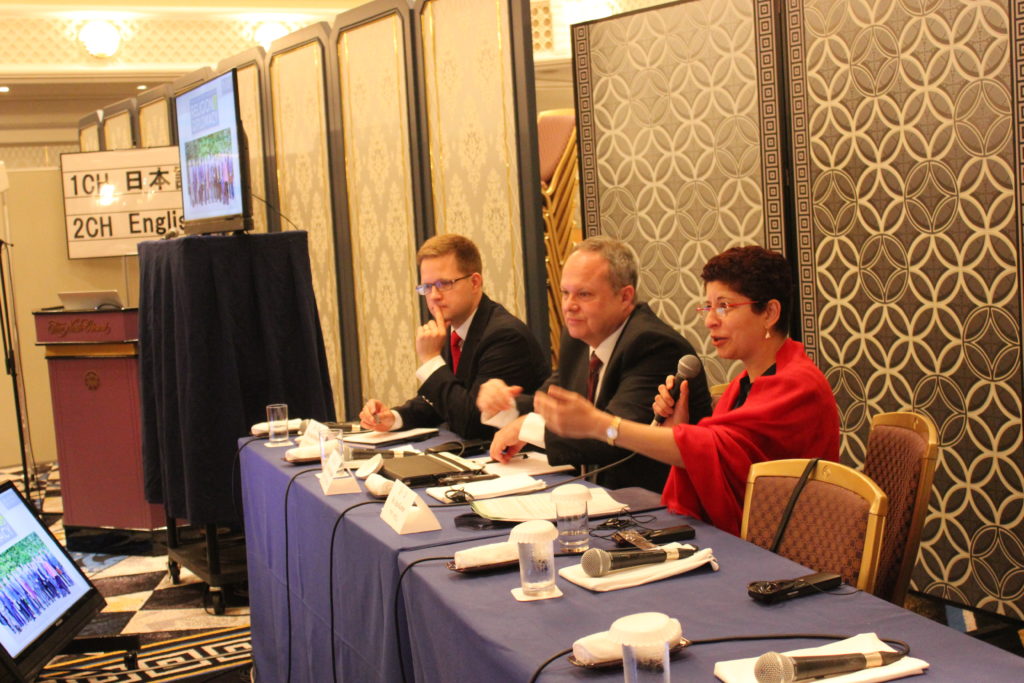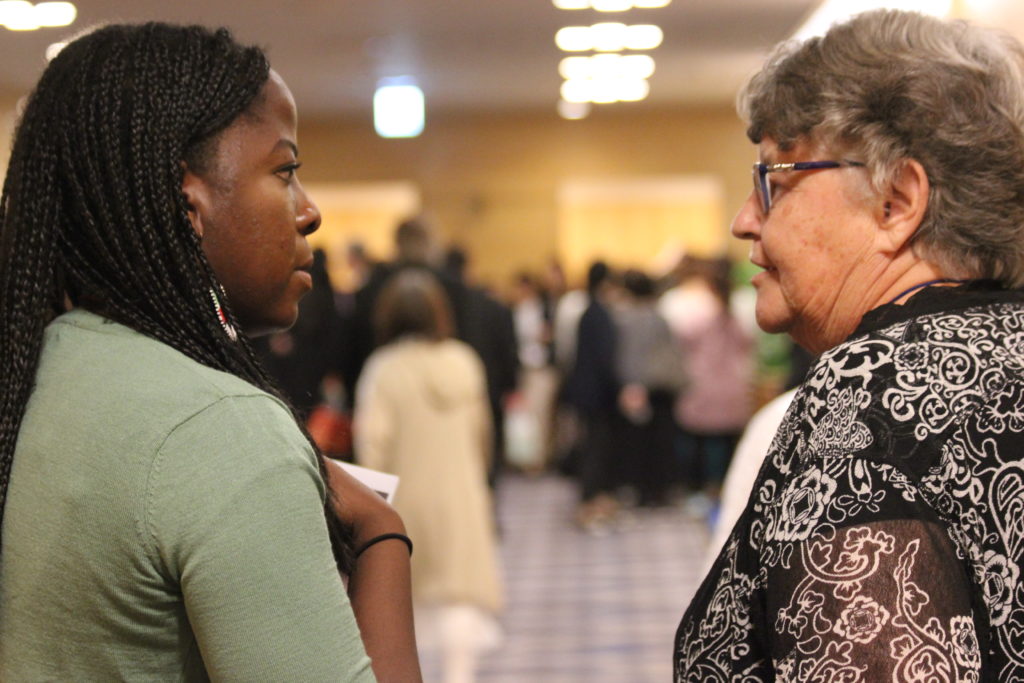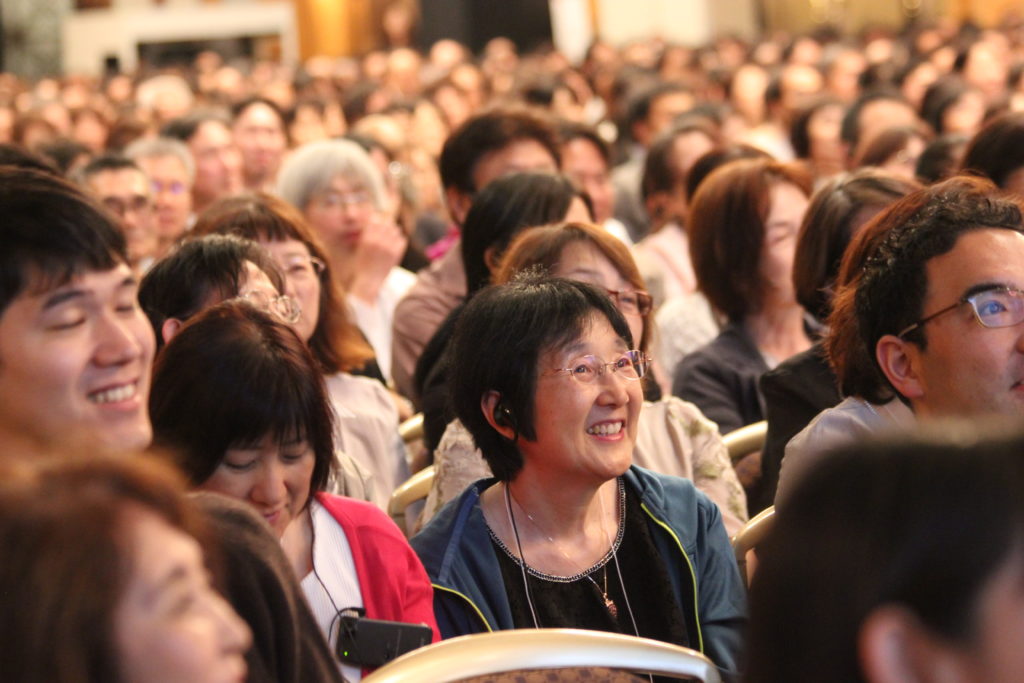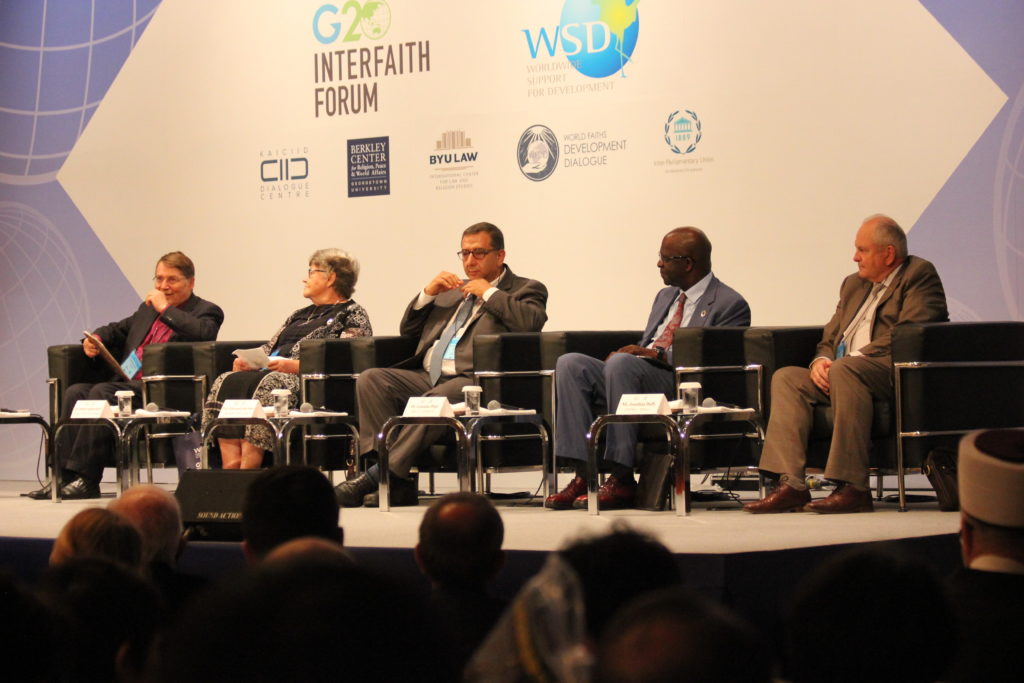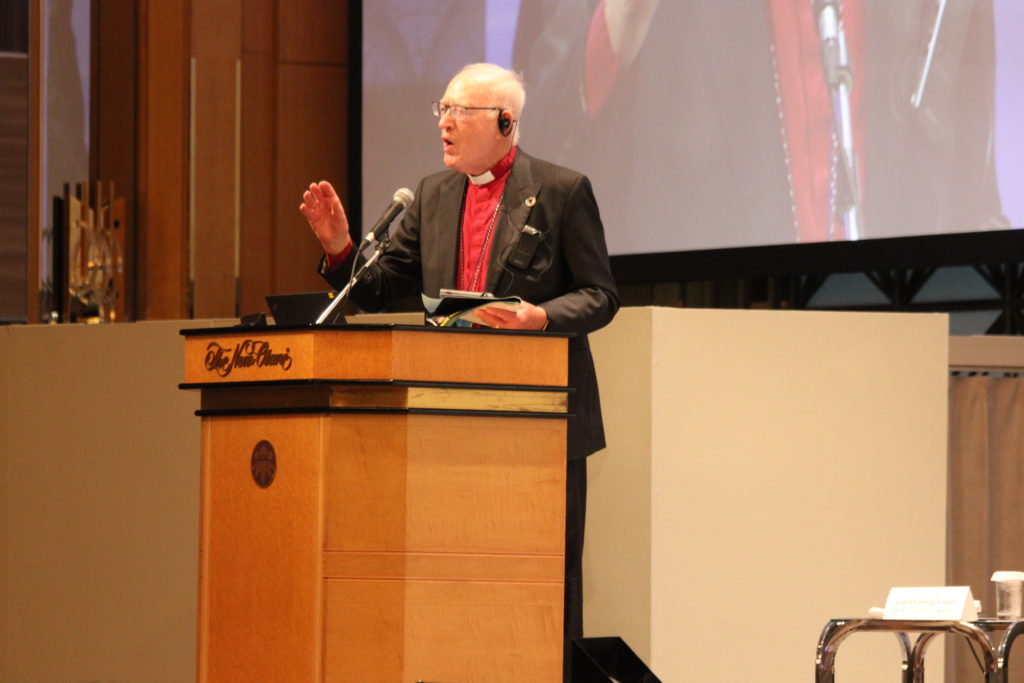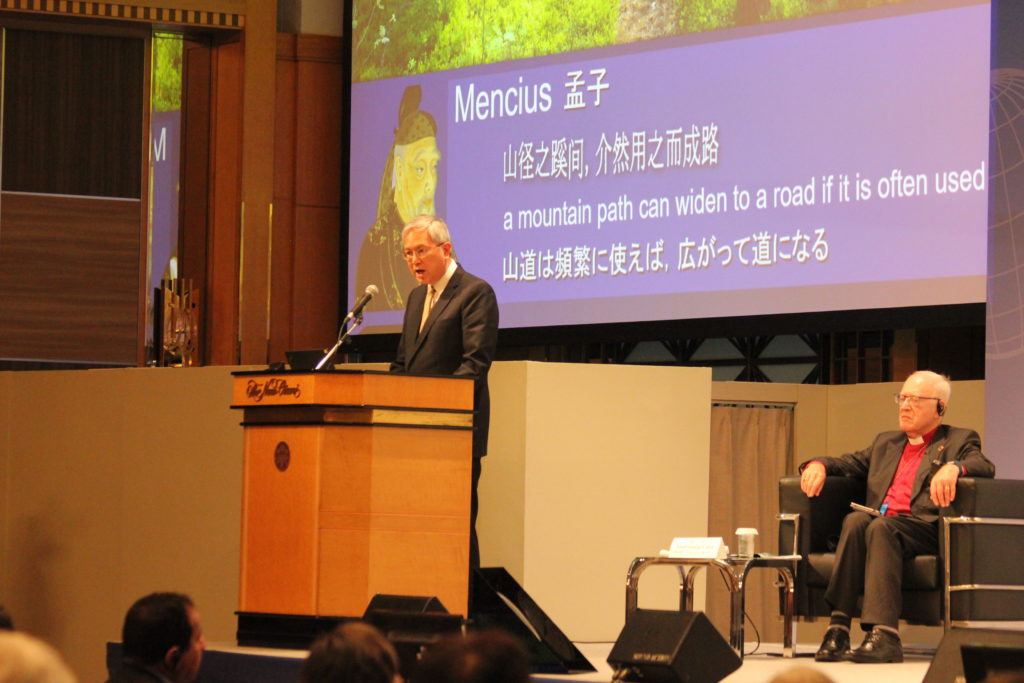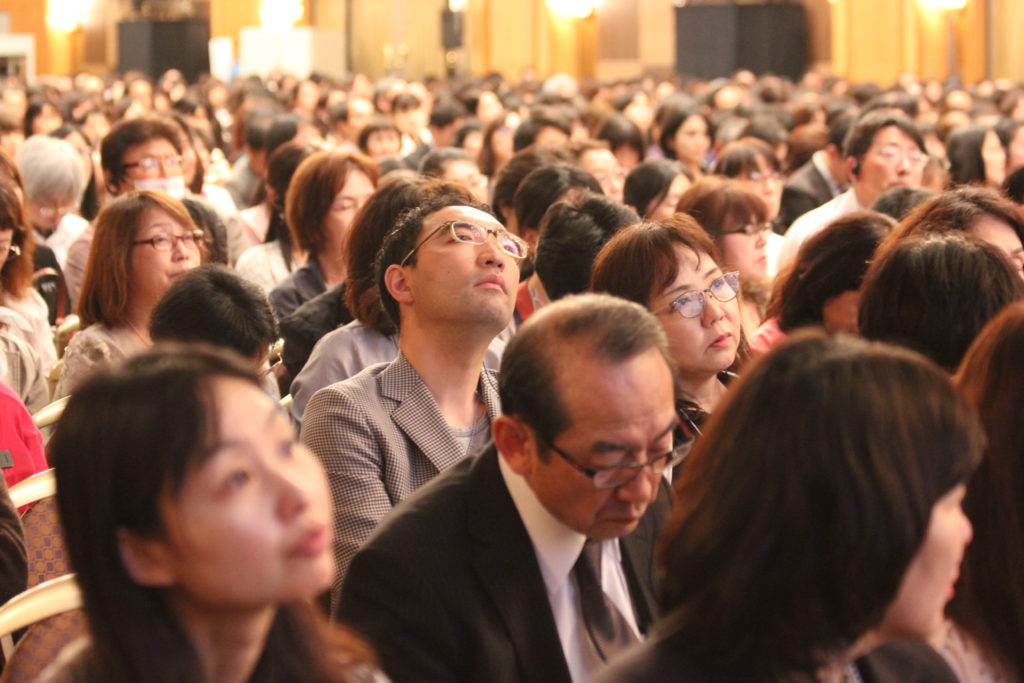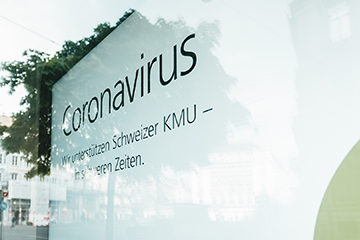G20 Interfaith Forum Day 2 Summary
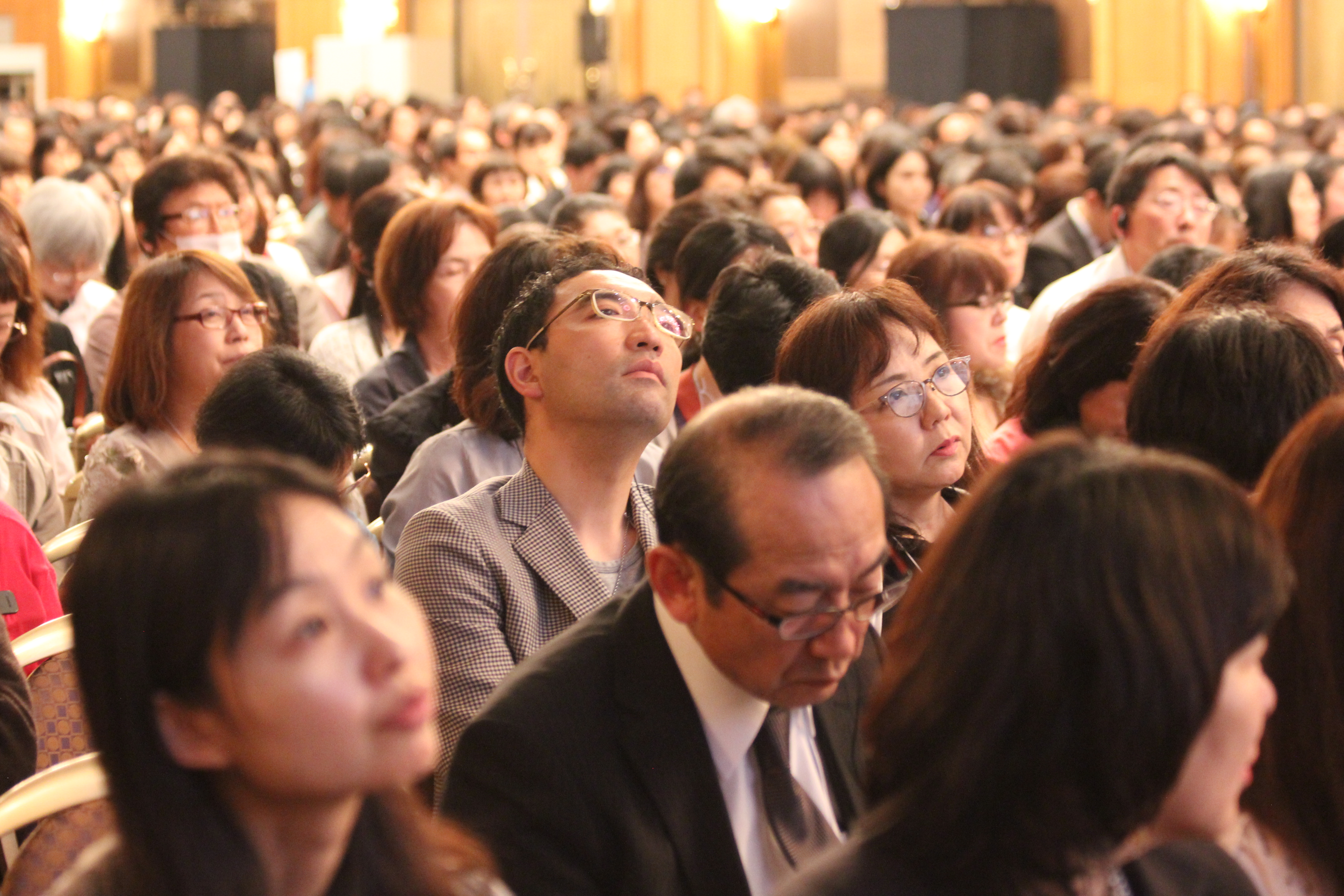
The G20 Interfaith Forum continued its 2019 forum with a breakout session focusing on its theme of Peace, People, and Planets: Pathways Forward. Along with its panel discussions, the forum introduced its first plenary sessions. Addressing almost two thousand members of the public, the plenary sessions focused on the forum’s mission to transform global goals into local action.
Peace
The “peace” session presented “peacebuilding in practice.
Religious actors and religious narratives are part of the problem when they fuel tensions and prevent reconciliation. Religion plays a part of the solution when they draw on their deep commitments to peace and respect for human dignity. Brendan Scannell, former Irish ambassador, shared, “The key to peace building is dialogue. Dialogue can work. Maintaining the dialogue is just as important as beginning it.”
With a world full of conflict, it is necessary to have peacebuilders in the world. Nobuyuki Asai, director of Soka Gakkai International, described his way to make amends with different cultures is through embracing differences. “The courage not to fear or deny difference, but to respect and strive to understand people of different cultures, and to grow from encounters with them.”
Nika Saeedi, Policy Specialist on Gender, Political Processes, and Peacebuilding, UN
Development Programme, said one of the challenges to peacebuilding is measuring the impact of of the peace building efforts; however she is passionate for this cause because there is “no other option.”
People
The “people” session focused on education. Panelists all agreed that education is central to progress forward, as expressed by Dicky Sofjan, core doctoral faculty at the Indonesian Consortium for Religious Studies.
“We consider education as an upstream way to solve the problems in society that we’re experiencing today,” Sofjan said.
The discussion centered around real-life experiments with both more fully integrating religious education into university curriculums and marlin education free and accessible for all. The successes and failures of the Open University in London and the MIT World Peace University in New Delhi were discussed by Sir Timothy O’Shea and Rahul Karad, centrals figures at each university.
The role of collaboration with governments was also discussed, along with the balance between religious education and religious indoctrination.
Karad said he thinks religious education is central to world peace.
“I am a firm believer that religion must be very beautifully communicated to the student community, without any adulation,” Karad said. “We need to be able to truly think about these things.”
Planet
Today’s discussion on the planet was led by a session entitled “Torn by Controversy: Cons and Pros of Extractive Industries.” Mineral, oil, and gas resources provide significant opportunities and fuel economies. However, many ventures face mounting controversies, including concerns with environmental degradation, corruption, encroachment on indigenous lands, and human rights violations.
Religious voices contribute both to awareness and to dialogue in many settings, identifying problems and risks and working for just and sustainable solutions that are in line with international standards and local development priorities.
The panel discussion centered around the need to alleviate the negative aspects wrought by extractive industries by putting the need of the greater good above a local or individual need.
“We only mine according to what we need,” said Raymond Ambray, Catholic Priest and Diocese of Tandag, Philippines. “If the goal of [extraction industries] is to serve humanity, we must look to others’ needs.”
Fellow panelist and founder of International Network of Engaged Buddhists, Sulak Sivaraksa stated that the only solution is to eliminate greed and instead seek self-sufficiency.
Of the work that religious organizations can do to promote the good in extraction industries, Interfaith Center on Corporate Responsibility Chair of Board Séamus Finn said, “On the ground and in local communities, religious communities have been on forefront providing pastoral and development care to communities impacted by mining and oil and gas operations.”
Urgent Issues
Human trafficking was an urgent topic that was discussed in today’s forum. Kevin Hyland, Ireland’s Member, Council of Europe Independent Group of Experts for Trafficking; Former Independent Anti-Slavery Commissioner, UK, stated, “Instead of looking at other people’s problems, start looking at solutions. Once we have trust, honesty, and transparency, we can start to fight this. That’s what the faith groups can be, that moral compass.”
There is wide international consensus on the evils of human trafficking and different forms of modern slavery, but far less on what is needed to address these issues. International law, police action, and national efforts yield results, but they fall well short of hopes and expectations.
Institutional Challenges
Saturday morning’s breakout sessions included an additional session on institutional challenges titled Governments Engaging Religion. Chaired by Judd Birdsall, Executive Director of the Transatlantic Policy Network on Religion and Diplomacy and Managing Director of the Cambridge Institute on Religion and International Studies, and including James Alexander, Lead Program Analyst for the US Department of State, and Azza Karam, Senior Advisor to the United Nations Population Fund and Coordinator of the UN Inter-Agency Task Force on Religion and Development, the panelists described the work of their agencies and some of the challenges.
Judd Birdsall outlined several challenges including the need to ‘right-size’ religion. This is an overarching theme, a phrase coined by Professor Vanderbilt based on the need to have a more nuanced and accurate picture of the role that religion plays in a given context rather than over or underestimating that role. Birdsall spoke of the creation of religionanddiplomacy.org.uk, an online collection of resources on religion and diplomacy.
James Alexander said that one of the US State Department’s main objectives is the promotion of international religious freedom. USCIRF produces a yearly report assessing the performance of different countries in meeting religious freedom standards. In addition, they focus on religious engagement. However, one of the major institutional challenges is working with religious actors at all. The First Amendment of the US Constitutions creates a separation of church and state, but in different situations that becomes more complicated and he elaborated on some of the questions that must be considered. He also outlined some of the efforts overseas. “There are many different factors and nuances going into the various events around the world,” Alexander said. “We must account for religion as it is lived.” Diplomats do not need to be religious scholars to engage in a community but they do need to learn to work with groups in a religious context.
Azza Karam spoke of her work at the UN. She saw challenges such as 1) Opportunism: More governments are committing resources to religious engagement as an opportunity or business; 2) Syncretism: We must ask if there is any value added in certain efforts. Not all groups agree at all times so we must ask what compromises are being made. “Invariably, these compromises are falling to gender (not just women) and the way we operate as human beings.” 3) Neocolonial Approaches: Certain actors have empires or legacies to uphold, economic, financial, and otherwise. “Colonialism has not left us; it simply has taken new forms.” She also spoke of concern that freedom of religion or belief has become merely an agenda in some cases.
Formal Inauguration of the Forum
This formal inauguration of the forum included greetings from the hosts and leaders. Keynote speeches outlined the challenges facing global leaders, such as inequality among and within nations, and highlighted avenues of dialogue and action to address it. The linked topics of conflict and peace, development of human capacities and addressing poverty, and protecting the planet were addressed.
“Why is an interfaith forum important to the G20? Faith traditions mobilize communities, and they help us appreciate life,” stated Katherine Marshall, Executive Director of World Faiths Development Dialogue. “Our goal is to shed light on the vast interfaith work that mobilizes agendas. We seek to find a way towards harmony, instead of dissonance.”
Faisal bin Abdulrahman bin Muaammar, Secretary General of KAICIID, noted that 85 percent of the global population identify with a religious organization. He said, “We must encourage political leaders to acknowledge the tremendous force for good that religious communities, actors, and leaders represent in the world.”
The inauguration wrapped up with a clear message to take global goals and utilize them at a local level. The recommendations will be pointless unless transferred to local areas, where the real measure of success in from conference will be found.
Action Agendas
The third and final plenary meeting of the day focused on testing ideas in the field and the experiences of various leaders with that. Lord Carey of Clifton, the 103rd Archbishop of Canterbury, moderated the session.
After an introductory overview of what faith groups have to offer in way of supporting peace, people and planet in the real world by Elder Gerrit W. Gong of the Quorum of the Twelve Apostles of The Church of Jesus Christ of Latter-day Saints, panelists responded with their own experiences.
Refugee services, conflict resolution and human trafficking proved central to the discussion, emphasized by KAICIID senior advisor Mohammed Abu-Nimer’s observation that xenophobia is at the heart of conflict.
“Our problem—our disease—as humans is our inability to deal with differences constructively,” Abu-Nimer said.
Panelists concluded that due to the challenges presented in the real world, the true key to success was quite simple: Just do it, and never give up.
For additional quotes and details on the day’s forum proceedings, please contact [email protected].
